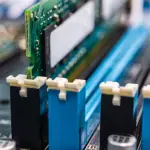 What is BTW in Texting?
What is BTW in Texting?
The history of texting can be traced back on December 1992. The first text message was sent via a computer to a Vodafone network phone. A Sema Group test engineer named Neil Papworth sent a ‘Merry Christmas’ message to a friend named Richard Jarvis. Today texting is more commonly known as SMS or Short Messaging Service.
Today, millions of text messages circulate around the world. Most probably, if you are one of those fond of sending text messages, you have already encountered the BTW abbreviation in texting. Abbreviations and other slang words used in SMS is called SMS language or Textese.
SMS lingo has evolved and many slang words and abbreviations were included. The most common abbreviation used in texting is the ‘BTW’. BTW stands for the phrase ‘by the way’. If you are new to the SMS language, then it is like learning a foreign language but not that difficult to learn. It is somewhat confusing at first but as you use the language, you will find it easier as days pass by.
BTW or by the way is a phrase used to express various meanings. It can mean ‘a space to proceed’, ‘a method or manner of doing something’. However, BTW is commonly used in texting as a way to express ‘incidental’ events. One good example is ‘By the way, she forgot to bring her ticket for the concert.’ SMS language continues to evolve and many slang words are added to the lingo.
Why does SMS language use short, abbreviated messages? Referring to the history of SMS language, it was primarily used in a way that is similar to sending a telegraph. Telegraphs are charged by word and so people tend to shorten their messages as much as possible. Later on, this technique was carried on to new technologies such as cellular phones, which have limited characters when writing messages. Exceeding the characters will mean additional charges, so people learned ways of shortening their messages in a way that other people can still understand.
Basically, SMS lingo omits some letters in a word. As for example, the word ‘be’ would be just ‘b’ in texting, the word ‘you’ becomes ‘u’ and ‘why’ becomes ‘y’. These examples show that even when you omit such letters, the result would still be understandable to most people. The most important thing is that a texter must be able to shorten the message as much as possible.
As SMS language evolved, many slang words have been added, smiley codes were also introduced, which were originally used by instant messengers such as Yahoo messenger, AIM, and MSN. Examples of slang words used in both SMS and instant messengers are BabitsU, which means ‘baby it’s you’, GrovyBab for ‘groovy baby’, and leta for ‘letter’. Such slang words are popular among young people using SMS lingo and internet slang.
On the other hand, both SMS and Internet lingo were criticized by many. John Humphrys was one of those criticizing the use of such language. He stressed out that SMS lingo is destroying the language. He argued that SMS lingo is such a lazy behavior in which people, especially students are often ignoring the proper use of spelling and grammar. On the contrary, David Crystal made a study about the use of SMS lingo and argued that it has no effect to the standard language. Despite Crystal’s study the belief that SMS lingo is destroying the standard language still continues.









Leave a Reply